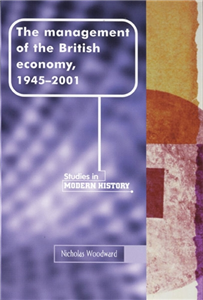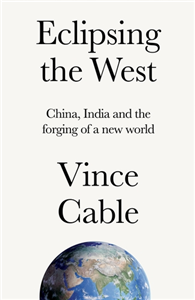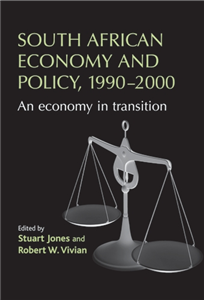Your Search Results
-
Guangdong Economy Publishing House Co., Ltd.
Guangdong Economics Publishing House Co., Ltd. is a leading professional publisher in China who aims at deliver engaging and adaptive solutions to readers in the fields of business management, investment, marketing & advertising, personal finance,military and scholarly monography in print and electrically. Located in Guangzhou, the capital city of Guangdong Province, the publishing house takes editing, publishing and distributing books, magazines, digital publication as well as copyright trading as its major business.Founded in 1995, we now publish over 500 books annually and provide our diversified products to readers all over China as well as overseas customers in Asia and Europe,. We joined the Guangdong Publishing Group in 1999 and now as a member of the Southern Publishing and Media Company Ltd., which went to the market in 2016, we look to a brighter future and greater marker globally.
View Rights Portal
-
Promoted ContentBusiness, Economics & LawJanuary 2023
What a waste
Outsourcing and how it goes wrong
by Andrew Bowman, Ismail Ertürk, Peter Folkman, Julie Froud, Colin Haslam, Sukhdev Johal, Adam Leaver, Mick Moran, Nick Tsitsianis, Karel Williams
This is the first ever book to analyse outsourcing - contracting out public services to private business interests. It is an unacknowledged revolution in the British economy, and it has happened quietly, but it is creating powerful new corporate interests, transforming the organisation of government at all levels, and is simultaneously enriching a new business elite and creating numerous fiascos in the delivery of public services. What links the brutal treatment of asylum-seeking detainees, the disciplining of welfare benefit claimants, the profits effortlessly earned by the privatised rail companies, and the fiasco of the management of security at the 2012 Olympics? In a word: outsourcing. This book, by the renowned research team at the Centre for Research on Socio-Cultural Change in Manchester, is the first to combine 'follow the money' research with accessibility for the engaged citizen, and the first to balance critique with practical suggestions for policy reform.
-
Promoted ContentBusiness, Economics & LawFebruary 2025
The political economy of Turkey’s integration to Europe
Uneven development and hegemony
by Elif Uzgören
This book examines Turkey's integration with Europe within structural dynamics of globalisation from a critical political economy perspective. Critical approaches have been sidelined within European Studies. Turkish enlargement is not an exemption. The analyses are based on original data generated by 109 interviews conducted in 2010, 2017 and 2023 with five categories of actors: representatives of capital and labour, political parties, state officials, and struggles around ecology, patriarchy and migration. It argues that the pro-membership was hegemonic in the 2000s which was contested by two rival class strategies, Ha-vet and neo-mercantilism. In the 2010s, pro-membership is no longer hegemonic within rising critical tone of social forces supporting rival class strategies. Unevenness of Turkey's trajectory of integration to Europe is likely to be consolidated through market integration and management of migration through transactional approach.
-
 Trusted Partner
May 2022
Trusted Partner
May 2022The Price of Freedom
What Europe must do now. A wake-up call
by Edzard Reuter
Edzard Reuter is a European by conviction, and a fighter for an economy that is also geared to the well-being of employees, the environment and society. In his book, he looks back at the 90 years of his life as a politically and socially committed person. The expert in and observer of world politics and the world economy shows how the world has changed and what role the Middle East, Russia, the USA and China play in this. For Reuter, the path of the European Union is quite clear: it has to become an independent state structure. The war in Ukraine testifies to the urgency of a paradigm shift in Europe.
-
 Trusted Partner
Humanities & Social SciencesNovember 2004
Trusted Partner
Humanities & Social SciencesNovember 2004The management of the British economy, 1945–2001
by Nicholas Woodward, Martin Hargreaves
Since 1945 British governments have played an active role in managing the economy in the interests of securing high employment, economic growth and low inflation with their approach evolving in response to changing economic circumstances, intellectual shifts and past policy failures. This book provides an overview of economic management, particularly financial management, and addresses how it has changed and why it has not always been successful. It examines the actual policies that were introduced, the problems that various governments faced in implementing them and how the approach to policy-making changed. It also examines the main phases of economic policy-making and the conduct of policy-making, as there is a widespread consensus that until recently short-run economic management could have been more successful than it was. Clearly and authoritatively written, it will be of particular benefit to students of economics, politics and contemporary history, although it will appeal to anyone with an interest in economic affairs. ;
-
 Trusted Partner
Business, Economics & LawJune 2021
Trusted Partner
Business, Economics & LawJune 2021Rigged
Understanding 'the economy' in Brexit Britain
by Anna Killick
In Brexit Britain, talk of 'the economy' dominates; however, we know surprisingly little about how people understand this term. In the aftermath of the 2008 crash and decades of neoliberalism, how are understandings of 'the economy' changing, and is it the case that Remain supporters care more about 'the economy' than Leave supporters? This timely and insightful book argues that people with similar experiences of the economy share an understanding of the term, regardless of whether they supported Leave or Remain. Through extensive ethnographic research in a city on the South coast of England, Anna Killick explores what people from a range of backgrounds understand about key aspects of 'the economy', including employment, austerity, trade and the economic effects of migration.
-
 Trusted Partner
Trusted Partner
-
 Trusted Partner
Humanities & Social SciencesJanuary 2012
Trusted Partner
Humanities & Social SciencesJanuary 2012The business of everyday life
Gender, practice and social politics in England, c.1600–1900
by Beverly Lemire, Pamela Sharpe, Penny Summerfield, Lynn Abrams, Cordelia Beattie, Kim Latham
From 1600 to 1900 a growing consumerism fired the English economy, shaping the priorities of individuals, and determining the allocation of resources within families. Everyday business might mean making a trip to the pawnbroker, giving a loan to a trusted friend of selling off a coat, all to make ends meet. Both women and men engaged in this daily budgeting, but women's roles were especially important in achieving some level of comfort and avoiding penury. In some communities, the daily practices in place in the seventeenth century persisted into the twentieth, whilst other groups adopted new ways, such as using numbers to chart domestic affairs and turning to the savings banks that appeared in the nineteenth century. In the material world of the past and in the changing habits of earlier generations lie crucial turning points. This book explores these previously under-researched patterns and practices that gave shape to modern consumer society. ;
-
 Trusted Partner
Trusted Partner
-
 Trusted Partner
Trusted Partner
-
 Trusted Partner
Trusted Partner
-
 Trusted Partner
Humanities & Social SciencesFebruary 2023
Trusted Partner
Humanities & Social SciencesFebruary 2023Globalized urban precarity in Berlin and Abidjan
Young men and the digital economy
by Hannah Schilling
Digital technologies promise efficiency and comfort, but the smoothness of platform services relies on the hidden social labour of those who keep the gig economy running. This book presents a comparative ethnography of young men making a living through digital technologies: selling mobile airtime in Abidjan, Côte d'Ivoire, and app-based delivery riders in Berlin, Germany. These case studies explore the significance of symbolic capital in urban youth's social existence and organisation of livelihood in the digital economy, and the technological mechanisms producing a new form of urban precarity. Globalized urban precarity in Berlin and Abidjan puts forward an original comparative approach to develop a global urban sociology for the digital era. It provides an innovative analytical toolbox that decentres discussions of precarity from the standard of a normal employment contract. With its focus on symbolic capital, the ethnography shows the consequences of the proliferating gig economy for status struggles among urban youth, and carefully embeds the densification of software and services into the socio-material relations on which these new urban infrastructures are built.
-
 Trusted Partner
Humanities & Social SciencesJune 2025
Trusted Partner
Humanities & Social SciencesJune 2025Living with water
Everyday encounters and liquid connections
by Charlotte Bates, Kate Moles
Living with water brings together sociologists, geographers, artists, writers and poets to explore the ways in which water binds, immerses and supports us. Drawing from international research on river crossings, boat dwelling, wild swimming, sea fishing, and drought impacts, and navigating urban waters, glacial lagoons, barrier reefs and disappearing tarns, the collection illuminates the ways that we live with and without water, and explores how we can think and write with water on land. Water offers a way of attending to emerging and enduring social and ecological concerns and making sense of them in lively and creative ways. By approaching Living with water from different disciplinary and methodological perspectives, and drawing on research from around the world, this collection opens up discussions that reinvigorate and renew previously landlocked debates. This book is relevant to United Nations Sustainable Development Goal 6, Clean water and sanitation
-
 Trusted Partner
Humanities & Social SciencesSeptember 2025
Trusted Partner
Humanities & Social SciencesSeptember 2025Eclipsing the West
China, India and the forging of a new world
by Vince Cable
As the international order begins to crumble, this incisive book asks what the rise of the Asian superstates means for the future. The Western-dominated world we have known for the past three hundred years is coming to an end. As America withdraws from its role as enforcer of the international order, other countries are moving in to fill the void. Among them are two rising Asian 'superstates'. Accounting for almost half of the world's population, China and India have the potential to wield enormous economic and political power. China is already vying with the US for the top spot in the global economy, and on some measures has surpassed it. By the middle of the century India may be number two. How will these countries navigate their growing roles on the world stage? What are the implications for commerce, international law and the fight against climate change? Vince Cable has followed China and India for decades, first as a professional economist and later as a senior government minister. In Eclipsing the West he draws on the latest data and a lifetime of political and economic experience to offer a compelling account of what the rise of the Asian superstates means for the future.
-
 Trusted Partner
Humanities & Social SciencesMarch 2022
Trusted Partner
Humanities & Social SciencesMarch 2022The British left and the defence economy
by Keith Mc Loughlin
-
 Trusted Partner
Business, Economics & LawMay 2023
Trusted Partner
Business, Economics & LawMay 2023Oil and the political economy in the Middle East
by Martin Beck, Thomas Richter
-
 Trusted Partner
Business, Economics & LawJuly 2010
Trusted Partner
Business, Economics & LawJuly 2010South African economy and policy, 1990-2000
An economy in transition
by Stuart Jones, Robert W. Vivian
The 1990s were the decade of transition from white rule to black rule in South Africa. In the political sphere the transition was dramatic. In the economic sphere less so, yet the effects were and are likely to be far more far reaching. It is the economic impacts which are likely to determine the future of the country. With the exception of the diamond-rich Botswana, all the countries of Africa which underwent the transition from white to black rule experienced economic decline. Is this to be the fate of South Africa? How was and is South Africa's historical role as the world's leading gold producer affected by the transition? Why did some economic policies succeed and others fail? This book, by leading authorities in the field, attempts to answer these and other related questions. ;
-
 Trusted Partner
Trusted Partner
-
 Trusted Partner
Trusted Partner
-
 Trusted Partner
Humanities & Social SciencesDecember 2017
Trusted Partner
Humanities & Social SciencesDecember 2017Building a peace economy?
by Jenny H. Peterson, Peter Lawler, Emmanuel Pierre Guittet
-
 Trusted Partner
Business, Economics & LawJune 2025
Trusted Partner
Business, Economics & LawJune 2025Foundations of social ecological economics
The fight for revolutionary change in economic thought
by Clive L Spash
This book explores radical dissent from orthodox mainstream economics, and sets out a theoretically grounded vision for the emerging paradigm of social ecological economics. At the heart of this paradigmatic shift lies an acknowledgement of the inextricable embeddedness of economies in biophysical reality and social structure. The struggle for this transformative vision unfolds through a critical examination of mainstream environmental thought, followed by a nuanced evaluation of contributions from Marxists, socialists, critical institutionalists, feminists and Post-Keynesians grappling with the urgent environmental crisis. Synthesising insights from these diverse and heterodox schools, the book navigates the philosophical underpinnings of science, embracing a critical realist approach that challenges not only mainstream economic thought but also eclectic pluralism, relativism and strong constructionism. The question of what constitutes revolutionary science is explored in light of works by Kuhn, Schumpeter and Neurath, emphasising the pivotal role of values and ideology in works from Marx to Gramsci. Building on these radical and philosophical foundations, the book articulates a preanalytic vision of social ecological economics, dismantling entrenched notions of growth and efficiency in favour of a framework centered on social provisioning and needs embedded in ethics. In a thought-provoking conclusion, the book applies its analytical lens to the multiple crises of modernity within industrialised capital-accumulating economies. An agenda for social ecological transformation toward diverse alternative economies emerges, providing a compelling call to action in the face of contemporary challenges.






















